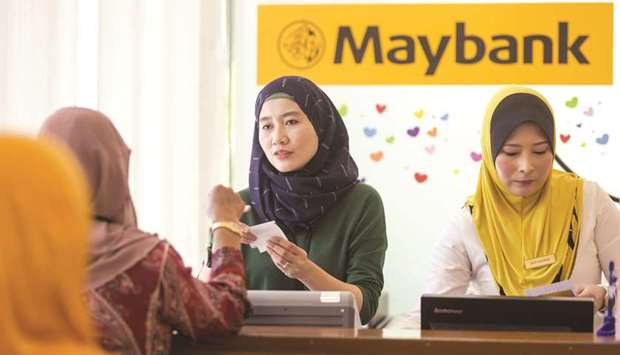The fast growing global Islamic economy, estimated at a current value of $6.4tn, has become a main driver for Islamic finance institutions and other sector players to intensify their globalisation efforts. In a long awaited step, Maybank Islamic Bhd, the Islamic finance unit of Maybank, Malaysia’s largest financial services group and the leading banking group in Southeast Asia, has now announced it will open its first overseas branch in Dubai in the first half of 2019.
The bank, which is also Malaysia’s largest fully-fledged Islamic bank, with the move seeks to tap the growing halal economy in the UAE and other Gulf Co-operation Council (GCC) member countries and to meet the strong demand for Islamic financing through sukuk and other halal financing structures which is currently only insufficiently met by established regional banks.
Meanwhile, Yousuf Mohamed al-Jaida, CEO of the Qatar Financial Center, at a recent press conference in Doha told media that the centre has plans to approach Malaysia and Turkey to set up complementing and interconnected Islamic finance hubs in each country which would ideally use common platforms and common technology supplied by the QFC.
According to Nikkei Asian Review, such hubs could be set up in Doha, Istanbul and Kuala Lumpur, and could also contribute to Qatar’s ambitions to diversify its economy away from oil and gas and help circumvent current economic blockades imposed by other GCC members.
Nikkei Asian Review quoted al-Jaida as saying that the hub in Istanbul could be used to do banking business with Europe and sell Islamic financial products there, while Kuala Lumpur could serve as a gateway to broader Southeast and East Asia.
Qatar, which in the past has made strong efforts to strengthen the Islamic banking sector, is also opening up to more foreign financial institutions, whether they are Shariah-compliant or follow a conventional business model. The QFC is allowing 100% foreign ownership in financial firms and 100% repatriation of profits and offers a solid legal framework with an aim to convince more foreign firms to set up shop in Doha rather than in Dubai where the Dubai International Financial Center follows a similar model, but lately saw international companies including financial firms launch an alternative base in Qatar as a result of the blockade which has created business insecurity for foreign firms in the region.
Maybank officials refer to the fact that the size of the world’s halal economy, which comprises sectors beyond Islamic finance such as halal food, halal travel and tourism, halal pharmaceuticals and cosmetics, halal healthcare, as well as halal fashion, halal media and halal recreation catering to Muslims, has nearly tripled from 2012.
Choosing Dubai for their first overseas branch has also to do with the fact that the city aims to increase the Islamic economy’s contribution to the city’s gross domestic product to 10% by 2021, compared to the current 8.3%, the Dubai Islamic Economy Development Center said in a recent statement. In 2018, the halal industry made up 5.8% of total Dubai trade volumes, figures from the Dubai Statistics Centre show, and this share should grow accordingly.
Maybank Islamic CEO Rafique Merican in an interview with Malaysia’s New Straits Times said that Islamic financing has by far not caught up with the growing size of the Islamic economy even in the GCC and that’s why he sees big potential to start Maybank Islamic’s international operations there.
Back in Malaysia, the government has set up an “Islamic first” policy initiative which should see more institutions adopt the halal aspects of the economy over the coming years. In the banking industry alone, Malaysia targets to reach 40% Shariah-compliant banking assets as share of overall banking assets by 2020, up from around 30%, or approximately $200bn, at the end of 2017.

An employee serves a customer at the information counter inside a combined Malayan Banking Bhd (Maybank) and Maybank Islamic Bhd bank branch in Kuala Lumpur (file). The fast growing global Islamic economy, estimated currently at $6.4tn, has become a main driver for Islamic finance institutions and other sector players to intensify their globalisation efforts.
